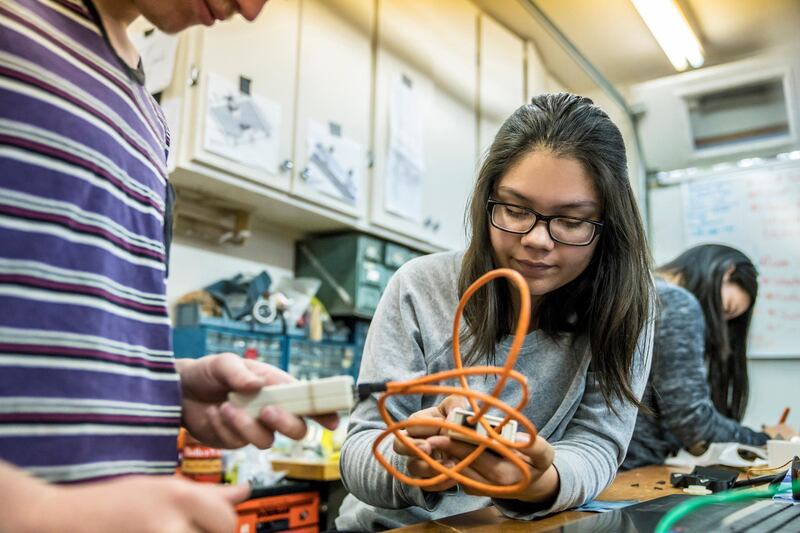The UAE's largest school will allow some pupils to choose what they study for a day and a half every week as part of a flexible-learning programme.
Grade 11 and 12 pupils at Indian High School, where the programme is being piloted, will spend three and a half days being taught in classrooms and the remaining day and a half pursuing interests in sports, academics and arts.
School hours will be extended by two hours a day to ensure pupils taking part in the programme still meet the required 30 hours of classroom time a week. The programme will be introduced from April 2, when the new semester begins, with 1,200 of the school's 14,000 pupils taking part.
Although Indian High School will be the first to introduce the Dubai Knowledge and Human Development Authority's Rahhal initiative, others are expected to join the programme.
Rahhal – which is part of 10X, the Dubai Future Foundation's plan to achieve 10 years' worth of development in the next two – aims to provide a creative and innovative alternative to mainstream education. It allows pupils to study at more than one school, or part time, while spending the rest of their time developing the skills they are most interested in.
“We are seeing this flexibility and personalised learning actually changing the lives of children,” said Dr Abdulla Al Karam, director general at KHDA. “This is a very new concept and we need stories to encourage parents.
“We have seen few, but strong, cases come through. That is more meaningful for us than the volume. The volume will come eventually.”
The programme is optional and can be tailored to meet each school's needs.
“You don’t have to study five days a week – this is a powerful message,” Dr Al Karam said.
Ashok Kumar, principal of Indian High School, said that by extending the school day the pupils will meet the academic requirement of 30 hours set by CBSE, an Indian curriculum followed by the majority of Indian schools in UAE.
“We fulfil those 30 hours in three and a half days. Then, for one and a half days, we have a buffet system of many courses and pupils can select any course, activity or internship inside or outside the school.
“They will be attending many schools simultaneously while being registered here. They can register with coaching camps or institutes to further their learning.”
Pupils can use the day and a half to pursue an internship, learn a language or to play an instrument, prepare for a competitive exam or engage in mindfulness.
Children who struggled to fit in activities on weekends can now dedicate the extra day and a half to them.
"The sixth day used to be a Friday when children had to fit in all of these activities. Now, Friday is free for them. We have given them an extra day," Mr Kumar said.
The pupils have to provide evidence, however, that the time is being used productively.
Ojas Sharma, 16, a Grade 11 pupil at Indian High School, hopes to return to his karate classes. "As a child, I loved doing karate and had many international titles. When my academic load started building up, I had to give it up," Ojas said.
He also wants to dedicate time to artificial intelligence and prepare for entrance exams in India and the US.
Grade 11 pupil Shivikha Shivananda, 16, plans to use the time to resume guitar lessons. “I used to play guitar and I had to leave this hobby because of studies. I will now get the chance to focus on playing guitar,” she said. Shivikha hopes to study international relations and law at university and plans to use the extra time to enrol in internships. She intends to take up sports and run for student council next year.
“When you apply to university, you have to put yourself apart. This will set me apart internationally, not just in the region,” she said.
“It’s a completely new idea so it will take some time to adjust.”







